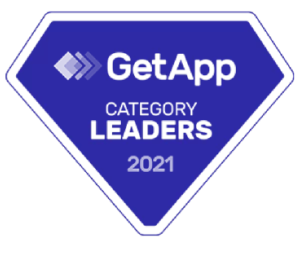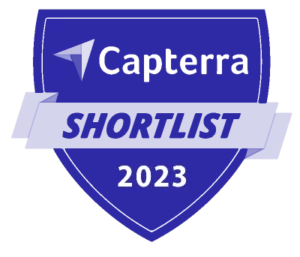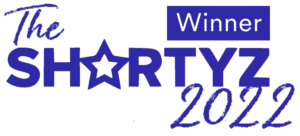As the short-term rental market continues to grow, with property owners and management companies striving to keep up with increasing demand and guest expectations. And as property managers know, short-term rental property management involves more than just accepting bookings—it’s about optimizing processes to maximize profitability, ensure seamless guest stays, and improve operational efficiency.
In this guide, we’ll explore strategies and tools to help you streamline rental operations, as well as boost guest satisfaction—ultimately elevating your vacation rental business.
Why streamlining rental operations matters
Even with a small portfolio load, managing a short-term rental business requires juggling multiple tasks, including guest communication, bookings, coordinating cleaners and teams, check-ins, pricing strategies, upkeep and restocks, among other rental property management duties. These processes can quickly become overwhelming without efficient systems in place. Streamlining your operations is not only about reducing workload and headaches but also about improving rental income and creating a superior guest experience.
With the right processes in place, managers can:
- Reduce errors and last-minute emergencies.
- Save time on repetitive tasks, allowing you to focus on growth.
- Improve occupancy rates by reducing turnover delays.
- Enhance guest satisfaction through seamless services.
- And drive positive reviews, boosting your property’s reputation and rankings on OTAs like Airbnb, Vrbo, and Booking.com, and implement direct booking strategies.
Automation is the key to rental management streamlining
So what do we mean when we say “streamlining”? Automation tools.
Automation tools allow hosts to manage bookings, simplify communication with efficient messaging, and handle turnovers in real-time. These tools integrate with property management software (PMS) to simplify tasks like calendar synchronization, automated messaging, and dynamic pricing. The result? More time to focus on scaling your business while ensuring operational efficiency.
Challenges in short-term rental operations
Even with the best intentions, property managers face significant challenges in managing rental operations. Identifying and addressing these roadblocks can set the foundation for long-term success and help managers avoid negative guest experiences and reviews. The following are arguably the most challenging obstacles for managers.
Time-consuming manual processes
From handling guest inquiries to coordinating with cleaners, managing multiple tasks manually is inefficient and prone to human error. The lack of streamlined systems can lead to delayed responses, scheduling conflicts, and dissatisfied guests—all of which are detrimental to STR businesses.
Inconsistent communication
Clear and timely guest communication is critical, yet many rental management companies struggle with maintaining consistency. Failing to address potential guests’ inquiries or provide timely updates can negatively impact guest satisfaction.
Uncoordinated turnovers
Delayed or poorly executed turnovers result in unprepared properties, missed check-ins, and (very!) negative feedback. Without proper scheduling tools, managing turnovers becomes a logistical nightmare, especially for multi-property management.
Lack of data insights
Without actionable insights, property managers struggle to make informed decisions about pricing, occupancy, and marketing. Access to financial reports and performance metrics is essential for scaling your rental property management effectively without wasting valuable time and resources on guesswork.
13 key areas to streamline in short-term rental management
Let’s delve deeper into the areas where streamlining operations can make the biggest impact on your short-term rental business.
1. Booking management
Efficient booking management is the backbone of any STR business. Without the right tools, managing listings on multiple OTAs can lead to over-bookings, missed opportunities, and angry guests.
- Solution: Use a property management software (PMS) that integrates with OTAs for seamless channel management. Platforms like Hostfully synchronize calendars in real-time, ensuring accurate availability and reducing the risk of double bookings.
2. Guest communication and messaging
Clear and timely guest communication fosters trust and creates a positive guest experience. However, responding to inquiries, sending check-in instructions, and addressing issues manually can be overwhelming.
- Solution: Automate guest messaging with pre-written templates for common queries, booking confirmations, and local recommendations. With Hostfully’s InboxAI, past conversations and relevant info can be communicated in the appropriate tone. (That said, personalization and edits can still be maintained while saving hours of work each week!)
3. Check-ins and smart locks
For both guests and property managers, the check-in process sets the tone for the stay. Traditional key exchanges can be inconvenient—or worse, they can get lost, leading to delays, security concerns, and frustrations.
- Solution: Install smart locks to provide contactless check-ins. Unique access codes can be generated for each guest stay (and then deleted), improving security and ensuring smooth arrivals and custom guest experiences.
4. Cleaning schedules and turnovers
Cleanliness is one of the most significant contributors to positive reviews. Managing turnovers across multiple properties requires precision and coordination.
- Solution: Research STR cleaning software tools as these can integrate with your PMS that allow you to automate cleaning schedules. Provide cleaners with real-time updates, detailed instructions and a reliable checklist for seamless turnovers.
5. Dynamic pricing and revenue management
Setting static rates leaves money on the table, as it fails to account for fluctuations in demand from economic shifts to environmental factors to seasonal ebbs and flows. Therefore, optimizing your pricing strategy ensures you remain competitive while maximizing revenue.
- Solution: Use dynamic pricing tools (or those specific to Airbnb) that adjust rates based on market trends, occupancy levels, and seasonal demand. These tools enable you to attract potential guests without compromising on rental income.
6. Channel management
Listing your properties on multiple platforms increases visibility, but without proper coordination, can lead to discrepancies in availability and pricing .
- Solution: Leverage a channel manager or PMS with a channel management system that synchronizes listings across OTAs. Leading channel managers will sync Airbnb, Vrbo, and Booking.com bookings as well as new and niche OTAs and direct booking sites. This ensures consistent rates, availability, and policies.
7. Financial management and bookkeeping
Tracking rental income, expenses, and taxes is essential for understanding your business’s financial health. Manual bookkeeping can lead to errors and missed tax deadlines.
- Solution: Integrate property management tools with accounting software to automate expense tracking, generate invoices, and create financial reports for yourself and your property owners. Robust property management platforms like Hostfully simplify payment processing and reporting.
8. Guest reviews and feedback
Even a first-time host knows that positive reviews are critical—not only for improving rankings but also for attracting future guests and bolstering your visibility on OTAs. Ignoring guest feedback or failing to request reviews can hurt your property’s reputation.
- Solution: Automate review requests after check-outs and monitor feedback on OTAs. Use tools that aggregate reviews from multiple platforms, allowing you to respond promptly. Also be sure to leave reviews, with or without custom templates.
9. Marketing strategies and direct bookings
Over-reliance on OTAs reduces your profit margins (hello high commission fees!). Expanding your online presence is vital for generating direct bookings. With the right tactics in place, you can leverage your presence on OTAs while benefiting from the revenue of direct bookings.
- Solution: Build a direct booking website and use social media and email campaigns to attract repeat guests. Though OTAs can be a critical part of your marketing strategy, offering incentives like discounts for direct bookings can help shift reliance away from OTAs.
10. Analytics and performance metrics
Without access to actionable data, it’s challenging to understand where improvements are needed or how to capitalize on opportunities.
- Solution: Use management tools that provide real-time insights into key metrics like occupancy rates, revenue per night, and booking trends. Access to your KPIs allows for data-driven decision-making and ensures sustainable growth.
11. Inventory and restocking management
Keeping your short-term rental property stocked with essentials like toiletries, linens, and kitchen supplies is critical to maintaining a positive guest experience. Manually tracking inventory can lead to shortages or overstocking, both of which impact your profitability.
- Solution: Create inventory checklists to stay organized and use inventory management tools to track supply levels and automate restocking notifications. Many property management systems (PMS) offer features to monitor consumables, ensuring you’re always prepared for upcoming guest stays.
12. Legal compliance and tax management
Navigating local regulations, permits, and taxes is a significant challenge for property owners in the short-term rental market. Failure to comply with local laws can result in fines, operational disruptions, or negative press.
- Solution: Stay compliant by automating tax calculations and filings through integrated tools within your PMS. These tools also track occupancy taxes collected from OTAs like Airbnb and Vrbo, streamlining your financial and legal responsibilities.
13. Staff coordination and task management
Whether you’re managing a single rental or multiple properties, coordinating with your cleaning crew, maintenance team, and vendors can be a logistical nightmare without proper tools.
- Solution: Utilize management tools designed for task assignment and tracking. Platforms that integrate with property management software enable you to assign tasks, set deadlines, and send notifications to staff in real-time, ensuring your entire team is aligned and efficient.
Conclusion
Streamlining your short-term rental management isn’t just a convenience—it’s a necessity in today’s fast-paced rental landscape and among travelers with high expectations. By automating repetitive tasks, adopting smart tools like a solid PMS and dynamic pricing software, and optimizing key areas of your operations, you can significantly improve profitability and guest experiences.
Whether it’s managing guest communication, simplifying turnovers, or leveraging channel management, these strategies empower you to grow your rental property management business efficiently.
For further guidance, explore Hostfully’s resources on vacation rental management, overcoming staffing challenges, and growing your rental inventory.
FAQs
How can automation help in managing short-term rentals?
Automation simplifies tasks like guest communication, cleaning schedules, and booking management, allowing you to focus on scaling your business and improving guest satisfaction.
What tools are essential for automating rental operations?
Key tools include property management software (PMS), smart locks, dynamic pricing tools, and automated guest messaging systems.
How can I reduce costs in managing my rental property?
Adopting automation tools, optimizing pricing, and increasing direct bookings are key strategies for reducing costs while maximizing revenue.
What are the common challenges in implementing rental management software?
Challenges include high upfront costs, the learning curve for new tools, and ensuring smooth integration with existing systems. However, the long-term benefits of improved efficiency and profitability far outweigh these initial hurdles.







